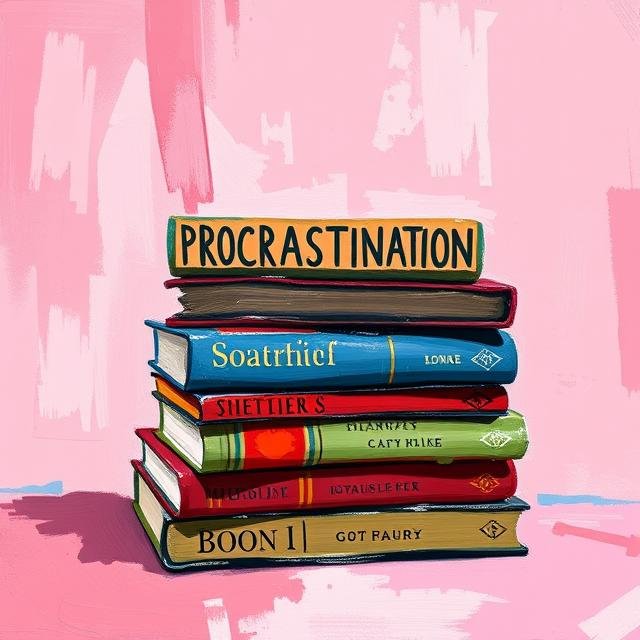Many of us have heard the anecdotal claims or experienced it firsthand: a roll in the hay often leads to a really good night’s sleep. But is there actual science behind this, or is it just wishful thinking? Does sex improve sleep in a measurable way? As we continue to seek natural ways to improve sleep and optimize our sleep habits, it’s worth exploring the fascinating connection between intimacy, orgasm, and the quality of our slumber in 2026. Let’s dive into what current research and understanding tell us.
- The Age-Old Question: Does Sex Truly Help You Sleep Better?
- The Science Unpacked: How Does Sex Improve Sleep?
- Does Sex Improve Sleep Differently for Men and Women?
- Sex as a Natural Sleep Aid: How Does It Compare to Other Methods?
- Considerations and Potential Downsides
- Incorporating Intimacy into Your Bedtime Routine for Better Sleep
- The Bidirectional Relationship: How Sleep Affects Sex
- Key Hormones Involved in Sex and Sleep
- When Sex Might Not Be the Best Sleep Solution
- Final Thoughts: Intimacy as a Path to Restful Nights
- FAQs: Sex and Sleep Quality Explained
- References
The Age-Old Question: Does Sex Truly Help You Sleep Better?
For centuries, people have suspected a link between sexual activity and improved sleep. Many report feeling relaxed and drowsy after sex, making it easier to drift off. But is this a universal experience, and what are the mechanisms at play? Fortunately, science is beginning to provide some clearer answers, suggesting that yes, for many, sex can indeed be a beneficial, natural sleep aid.
Beyond Anecdotes: What Recent Studies Suggest
Recent studies, including some from 2023, 2024, and pilot studies extending into 2025 insights, have been exploring this connection more objectively. Research indicates that sexual activity, particularly when leading to orgasm, can be associated with:
- Shorter time to fall asleep (reduced sleep latency).
- Improved overall sleep efficiency (spending a greater proportion of time in bed actually sleeping).
- Reduced wakefulness during the night.
- Better self-reported sleep quality.
Is It Just About Orgasm, or Does Intimacy Itself Play a Role?
While orgasm seems to be a key factor due to hormonal releases, the intimacy and emotional connection involved in partnered sex can also contribute to relaxation and stress reduction, which are conducive to better sleep. Even solo sexual activity leading to orgasm has shown objective sleep benefits in some studies.
The Science Unpacked: How Does Sex Improve Sleep?
Several physiological and psychological factors contribute to why sex can be one of the effective natural ways to improve sleep.
The Hormonal Cocktail: Nature’s Sleep Potion
After sex, and especially after orgasm, your body releases a cocktail of hormones that can promote relaxation and sleepiness:
- Prolactin: Levels of this hormone surge after orgasm, particularly in men, and it’s strongly associated with feelings of sexual satisfaction and drowsiness. Some research indicates prolactin release is significantly higher after partnered sex orgasm compared to masturbation.
- Oxytocin: Often called the “love hormone” or “cuddle hormone,” oxytocin is released during intimate activities like hugging, kissing, and sex. It promotes feelings of closeness, reduces stress (by lowering cortisol), and can induce calmness, making it easier to sleep.
- Endorphins: These are your body’s natural mood boosters and pain relievers, released during physical exertion and pleasurable activities like sex. They can promote relaxation and a sense of well-being.
- Serotonin: Orgasm can lead to an increase in serotonin, a neurotransmitter that enhances mood and promotes relaxation. Serotonin is also a precursor to melatonin, the key sleep-regulating hormone.
- Cortisol Reduction: Sex, particularly with a trusted partner, can lower levels of cortisol, the body’s primary stress hormone. High cortisol levels are known to interfere with sleep.
Physical Exertion and Muscle Relaxation
Sexual activity is a form of physical exercise. The exertion can tire you out, and the physical release, especially with orgasm, can lead to muscle relaxation throughout the body, which is beneficial for falling asleep.
Psychological Benefits: Stress Reduction and Connection
- Stress Relief: Intimacy and sexual release are powerful stress relievers. Reducing anxiety and mental chatter can significantly improve your ability to fall asleep.
- Emotional Connection: For partnered sex, the emotional closeness and bonding can foster feelings of security and comfort, which are conducive to restful sleep. Studies suggest that people in stable, long-term relationships may experience greater sleep benefits from sex.
Does Sex Improve Sleep Differently for Men and Women?
There’s a common stereotype that men fall asleep quickly after sex while women might want to cuddle or talk. While there’s some physiological basis for men often feeling sleepier due to a more significant prolactin surge, women also experience sleep-promoting hormonal changes.
- Some studies have found that while men might report feeling sleepier, objective measures show sleep quality improvements for both sexes.
- One study from Central Queensland University even noted that women slept longer and experienced less wakefulness after partnered sex or solo masturbation.
- The key factor often seems to be achieving orgasm for both partners to experience similar levels of post-sex drowsiness.
Sex as a Natural Sleep Aid: How Does It Compare to Other Methods?
When considering natural ways to improve sleep, how does sex stack up against other common strategies?
Comparing Sex to Other Sleep Improvement Techniques
- Relaxation Techniques (Meditation, Deep Breathing): Sex incorporates elements of physical relaxation and stress reduction, similar to these techniques, but with added hormonal benefits.
- Warm Bath or Shower: Both can lead to a body temperature drop that signals sleep, but sex has the added hormonal and emotional components.
- Herbal Remedies (Chamomile, Valerian): These work through different biochemical pathways. Sex offers a more holistic physiological and psychological effect.
- Improving Sleep Hygiene: Sex can be a wonderful addition to good sleep hygiene (like a dark room, consistent schedule), but it doesn’t replace these foundational elements.
It’s not necessarily an “either/or” situation; sex can be a complementary part of a broader strategy to improve sleep habits.
Considerations and Potential Downsides
While generally beneficial, there are a few instances where sex might not lead to better sleep:
- Vigorous or “Rough” Sex: If sexual activity is extremely energetic and raises your heart rate significantly right before trying to sleep, it could initially be more arousing than relaxing for some.
- Performance Anxiety or Relationship Stress: If sex itself is a source of anxiety or conflict, it’s unlikely to be a relaxing prelude to sleep.
- Cutting into Sleep Time: If sexual activity significantly delays your intended bedtime and reduces your total sleep duration, the benefits might be negated.
- Individual Differences: Everyone is different. A small number of people might find they feel more awake or take longer to fall asleep after sex.
Incorporating Intimacy into Your Bedtime Routine for Better Sleep
If you’re interested in leveraging sex to improve sleep, consider these tips:
- Make Time for It: Don’t let it be an afterthought if you’re both tired.
- Focus on Connection and Pleasure: Stress-free, enjoyable intimacy is more likely to lead to relaxation.
- Communicate with Your Partner: Understanding each other’s needs and desires enhances the experience.
- Follow Good Sleep Hygiene: Even with sex as a sleep aid, ensure your bedroom environment is conducive to rest. Your bed should ideally be reserved for sleep and sex.
The Bidirectional Relationship: How Sleep Affects Sex
It’s also important to note that the relationship between sex and sleep is bidirectional. Poor sleep or sleep deprivation can:
- Reduce sexual desire and arousal.
- Increase the risk of erectile dysfunction in men.
- Negatively impact mood and energy levels, affecting intimacy. Prioritizing good sleep habits can, in turn, improve your sex life.
Key Hormones Involved in Sex and Sleep
| Hormone | Released During/After Sex | Effect Related to Sleep |
|---|---|---|
| Prolactin | After orgasm (esp. men) | Promotes drowsiness, satisfaction |
| Oxytocin | During intimacy, orgasm | Reduces stress, promotes calm & bonding |
| Endorphins | During physical activity (sex) | Mood elevation, relaxation, pain relief |
| Serotonin | Orgasm (can increase) | Promotes relaxation, precursor to melatonin |
| Cortisol | Reduced after sex | Lower stress levels, easier to relax/sleep |
Export to Sheets
When Sex Might Not Be the Best Sleep Solution
- If it causes pain or discomfort.
- If it’s associated with significant emotional stress or relationship conflict.
- If it consistently leads to significantly delayed bedtimes and insufficient sleep duration.
- If you have underlying medical conditions that affect sexual activity or sleep (consult your doctor).
Final Thoughts: Intimacy as a Path to Restful Nights
So, does sex improve sleep? The growing body of scientific evidence, combined with widespread anecdotal reports, strongly suggests that for many people, it does. The release of sleep-promoting hormones, coupled with stress reduction and physical relaxation, makes sexual activity, especially leading to orgasm, a potent natural way to improve sleep quality and enhance overall sleep habits. While not a cure-all for serious sleep disorders, incorporating healthy intimacy into your life can be a pleasurable and effective component of your strategy for achieving better, more restorative rest.
FAQs: Sex and Sleep Quality Explained
Does sex really help you fall asleep faster?
Is it true that men fall asleep after sex more easily than women?
Does masturbation have the same sleep benefits as partnered sex?
Can sex replace other natural ways to improve sleep, like melatonin or chamomile tea?
What if having sex makes me feel more awake instead of sleepy?
References
- Sleep Foundation. (n.d.). The Relationship Between Sex and Sleep. Retrieved from https://www.sleepfoundation.org/physical-health/sex-sleep
- Hims. (2025, April 23). Does Sex Help You Sleep? Retrieved from https://www.hims.com/blog/sex-help-you-sleep
(Note: This date reflects information found during the search; verify source for latest version.) - PsyPost. (2025, May 27). Sexual activity before bed improves objective sleep quality, study finds. Retrieved from https://www.psypost.org/sexual-activity-before-bed-improves-objective-sleep-quality-study-finds/
(Note: Based on date observed in search; confirm with source if needed.) - Sleep Doctor. (n.d.). How Sex Affects Sleep. Retrieved from https://sleepdoctor.com/pages/health/sleep-and-sex
- Lastella, M., Miller, D. J., Montero, A., Sprajcer, M., Ferguson, S. A., Browne, M., & Vincent, G. E. (2024). Sleep on it: A pilot study exploring the impact of sexual activity on sleep outcomes in cohabiting couples. Sleep Health.
Retrieved from https://pubmed.ncbi.nlm.nih.gov/40016080/
(Cited in 2025 articles; confirm original publication date via journal source.)










